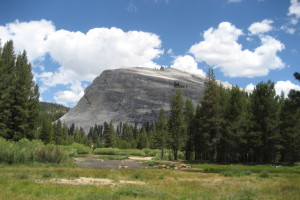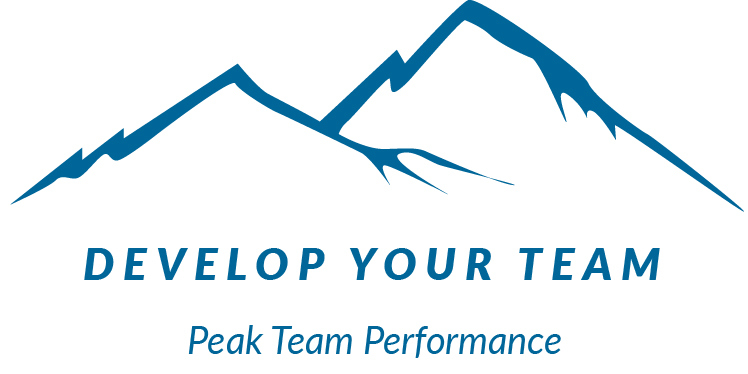Recently I was hiking on a granite dome, and after exploring a bit at the top, found myself challenged with finding a navigable route back down. In essence, I was “lost” on the dome, climbing up and down steep slopes for a couple of hours, occasionally getting stuck and frequently wondering whether I’d ever make it down in one piece. At times I thought it was either going to take a rescue or a fall to get me off that mountain. But I kept at it, and after much scrambling, climbing, sliding, and scooting along the rocks, I successfully made it to a trail, and then back to camp (just in time for dinner).
The experience got me thin king about team challenges and what makes them so effective. A typical workplace team is rarely tested in the normal work environment. Team members perform their duties, handle responsibilities, and complete tasks routinely, but usually without ever knowing what they are truly capable of. And because of this, they don’t necessarily stretch themselves to try to do more, and team potential remains untapped.
king about team challenges and what makes them so effective. A typical workplace team is rarely tested in the normal work environment. Team members perform their duties, handle responsibilities, and complete tasks routinely, but usually without ever knowing what they are truly capable of. And because of this, they don’t necessarily stretch themselves to try to do more, and team potential remains untapped.
A well-designed challenge activity will take team members outside of their comfort zones (but not too far!). It allows them to step out of their normal work environment and into one that propels them to learn more about themselves individually and as a team. Those lessons can then be applied back in the workplace. For example, team members may recognize something about the way they communicate (or don’t) that influenced their ability to be successful in a challenge. Or, they may have found that it was necessary to rely on the diverse strengths of all team members in order to achieve a goal.
Often self-confidence increases through participation in challenge activities. Participants may recognize that: “If I could do that, then I can most certainly do this!” In my own dome-climbing adventure, I had to rely on strengths that I didn’t even know I had, until they were tested on the mountain.
I also came to understand things at a deeper level that I had already known. For example, the importance of planning, and thinking ahead further than the next step or two. And how failure to look at the goal from a big-picture perspective can lead to dead-ends or jams that are really hard to get out of. Additionally, I had to recognize when something was beyond my skill. Just because I wanted and was willing to climb up a certain slope didn’t mean that I necessarily had the size or physical strength to do so. These are similar to the types of things that team members may learn during challenge activities.
Every team and every challenge activity experience is unique. What insights will your team have that will drive them to peak performance?
